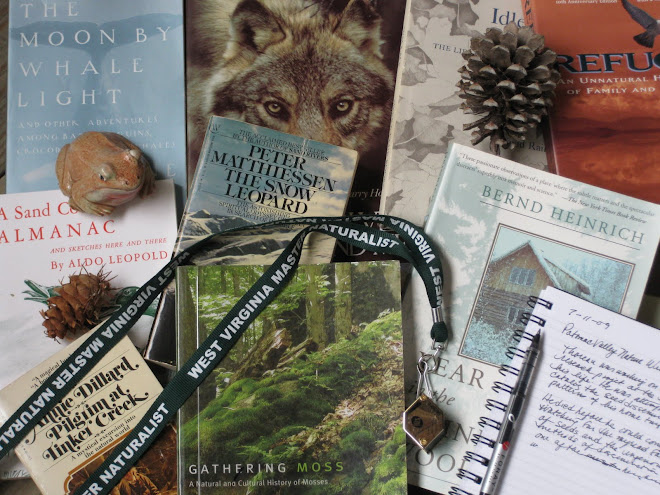The tragedy in life is not what men suffer, but what they miss. Thomas Carlyle
This month our reading hours are minimal, as we "get out there." The goal is to immerse ourselves in nature by using our full complement of human capacities, especially those that are dormant and compromised by our comfort-loving modern ways of life.
Tom Brown, Jr. has made a career of mentoring others through this "deconditioning." Part I of his book Nature Observation and Tracking guides us through specific exercises and thought experiments--to fine-tune our senses, release our inhibitions, and break through our habitual blindness.
In the coming weeks, we each embark on a personal discovery following his path. At our next meeting we will report on our experiences and practice as a group some of the skills we have learned. This last book of the season also sets us up for a summer of diving deeper than ever into naturalist adventures.
Mr. Brown himself is a controversial fellow, a brief span of web surfing calls into question his autobiography as a bit of commercial mythmaking. Brown supposedly was mentored from childhood by an Apache elder named Stalking Wolf, from whom he learned his philosophy and wilderness acumen. Whether this is true or not, Brown's methods do have power if one has the courage to try them and the patience to develop them. Brown is a darling of the survivalist set, he has authored multiple works of fiction and nonfiction and draws participants the world over to his workshops in the Pine Barrens of New Jersey and in California.
 Two other authors should be mentioned here. Joseph Cornell was early in the vanguard of the nature awareness movement. His Sharing Nature With Children sold 500,000 copies in over 20 languages, sparking a worldwide revolution in nature education and becoming an instant classic. Cornell's books now serve as popular nature-education resources all over the globe. See some of his nature activities here.
Two other authors should be mentioned here. Joseph Cornell was early in the vanguard of the nature awareness movement. His Sharing Nature With Children sold 500,000 copies in over 20 languages, sparking a worldwide revolution in nature education and becoming an instant classic. Cornell's books now serve as popular nature-education resources all over the globe. See some of his nature activities here.
Richard Louv, in The Last Child in the Woods, hatched the concept nature-deficit disorder, and spawned an international movement to reconnect children with nature. He is a tireless advocate for the crucial developmental impact of unfettered play and exploration in the natural world. His newer title, The Nature Principle, translates this effect to adults. Citing extensive research, he shows how we can tap into the restorative powers of the natural world to boost mental acuity and creativity; promote health and wellness; build smarter and more sustainable businesses, communities, and economies; and ultimately strengthen human bonds.



